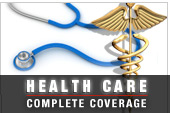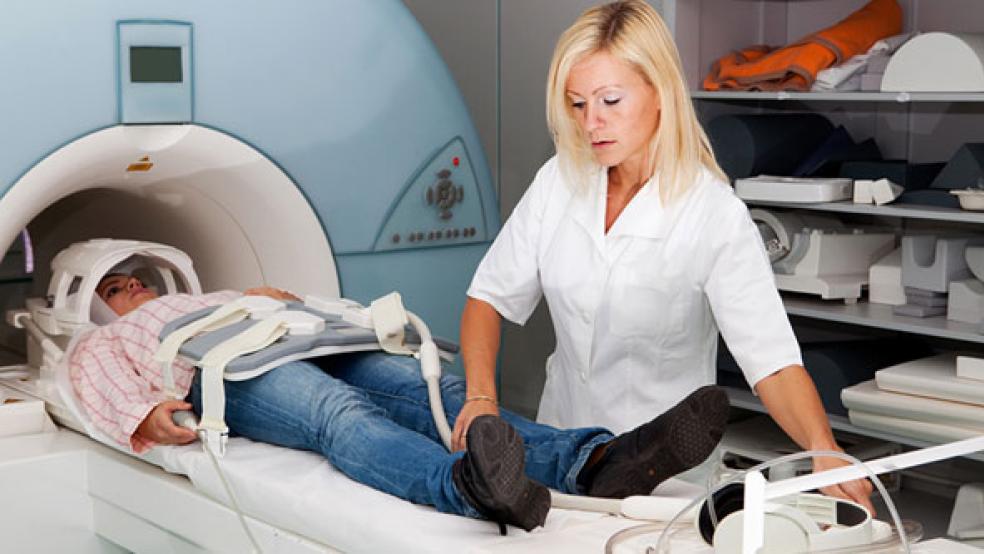When it comes to medical treatment, more isn’t necessarily better.
Americans might not like hearing it, but that’s the message from 17 separate medical societies out with a new list of 90 tests and procedures they say are commonly ordered by doctors but aren’t always necessary – and may sometimes be harmful. The medical groups behind the list represent more than 350,000 physicians across a range of specialties, from family doctors and pediatricians to rheumatologists and geriatricians.

The coalition is working under the auspices of the American Board of Internal Medicine Foundation as part of a campaign called “Choosing Wisely.” The campaign launched in April 2012 with a list of 45 questionable tests and procedures compiled by nine medical societies.
The new list adds 90 more treatments that should be scrutinized, with the stated intent of prompting conversations between patients and doctors about which are really necessary. Doctors might order tests that aren’t needed in order to placate patients, increase profits or avoid potential lawsuits and accusations of negligence.
“We always talk about this campaign as removing waste, improving quality and improving safety,” says Daniel Wolfson, executive vice president and chief operating officer of the ABIM Foundation. “As a byproduct, it might or might not reduce costs. We hope that it would, but it’s not our primary objective. Our primary objective is to change the American public’s attitude that more is always better and physicians’ attitudes about their responsibility to be good managers of resources on behalf of their patients.”
While the campaign itself won’t measure any cost reductions achieved, there are billions in savings to be had by eliminating waste. The U.S. spends an estimated $2.5 trillion a year on health care, or more than $8,000 per person – far more than in other developed countries. Much of that money is wasted. The U.S. health care system squandered about $750 billion a year as of 2009, or more than a third of total health care expenditures, according to a report released last year by the Institute of Medicine. That included some $210 billion in excess costs due to unnecessary services.
“If only half of these excess expenditures were applied to other functions, it would be enough to buy groceries for every household in America for an entire year,” the report noted. “If the waste in health care were redirected, it could provide every young person in America aged 18-24 the average annual tuition and fees of a 4-year institution of higher learning for 2 years. And the total waste could pay the salaries of all of the nation’s first response personnel, including firefighters, police officers, and emergency medical technicians, for 12 years.”
The medical societies involved in the campaign were asked to come up with five tests or procedures that are doctors in their area of practice rely on too much. Their guidelines and recommendations are based on what treatments actually help patients get better. The earlier list of 45 tests and procedures that should be questioned included using MRI or similar imaging for lower back pain within the first six weeks unless certain warning signs are present; prescribing antibiotics for sinus infections lasting less than a week; repeating colonoscopies within 10 years on patients who had normal results and aren’t at high risk of colon cancer. The group expects to release another list later this year.
Among the questionable procedures on the latest list:
- Induction of elective labor or cesarean sections before 39 weeks of gestation. “Delivery prior to 39 weeks is associated with increased risk of learning disabilities, respiratory problems and other potential risks,” the report notes.
- Annual pap tests in women 30 to 65 years old. For most women, annual pa smears offer no benefits over screenings done every three years, according to the American College of Obstetricians and Gynecologists.
- Inserting feeding tubes for patients with advanced dementia. “Feeding tube use in such patients has actually been associated with pressure ulcer development, use of physical and pharmacological restraints, and patient distress about the tube itself,” according to the American Academy of Hospice and Palliative Medicine. Feeding the patients is better, the report says.
- CT scans for children with minor head injuries. About half of children who visit emergency rooms with head injuries get CT scans that expose them to radiation, potentially increasing the future risk of cancer. The American Academy of Pediatrics recommends doctors monitor the patient in order to determine whether a scan is needed.
- Giving cough and cold medicine to kids younger than four. Research shows that these medications don’t help children much and could cause serious side effects.
The full list of questionable tests and procedures is available at ChoosingWisely.org.




